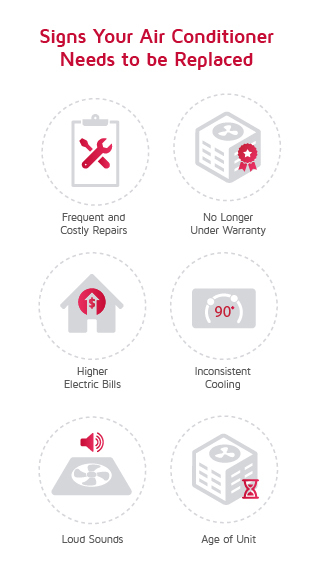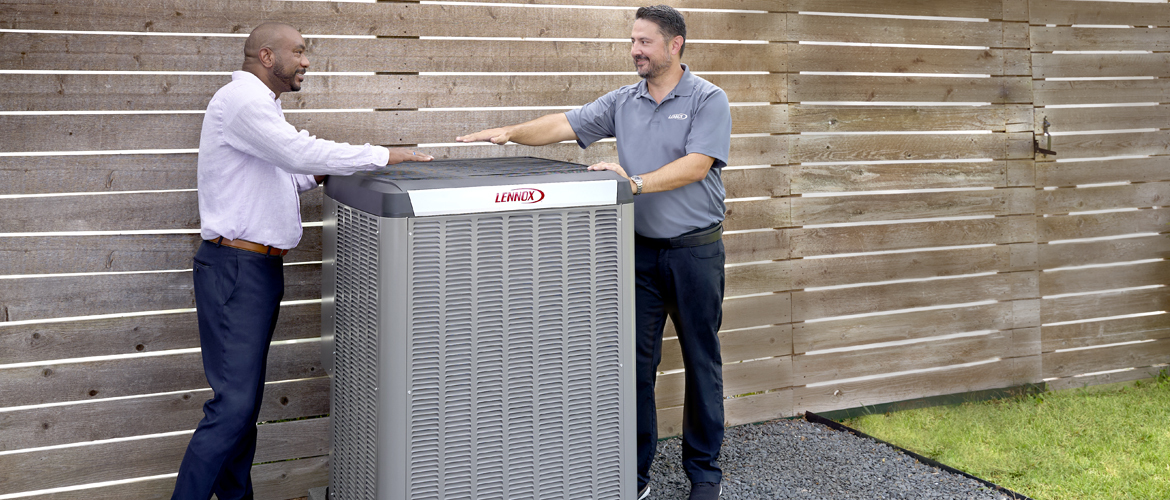The average lifespan of a well-maintained air conditioning unit is 15-20 years. However, different AC systems have different lifespans and knowing what to expect from your unit is essential. There are several factors that can influence its lifetime, including the frequency of maintenance, the quality of installation and the climate in which the unit operates.
Average Lifespan of Different Air Conditioner Types
Central Air Conditioners
Central air conditioners typically last between 15 to 20 years. Regular cleanings and tune-ups can extend the lifespan of a central AC unit and ensure that it operates at peak performance.
Ductless Mini-Splits
These units have a lifespan of 15 to 20 years. As with traditional ducted systems, ductless mini-splits require regular maintenance to increase their life expectancy. You also need to make sure your filters aren’t clogged.
Heat Pumps
The life expectancy of a heat pump depends on several factors, such as the type of heat pump, your location, and how well the heat pump is maintained. They normally last an average of 15 years, though some can wear out after a decade. Some of the newer units being manufactured today can last a bit longer. Clean or replace air filters regularly to ensure proper airflow, ensure the unit is cleared of debris and vegetation, and check that the defrost cycle works.
Window Units
Window units have a much shorter lifespan of five to eight years. It may be time to upgrade to a more efficient and long-lasting system if your window unit is running non-stop in the summer. Replace your energy-draining window units with central AC, ductless mini-splits or a heat pump to save money on your energy utilities.
Factors that Shorten Your AC’s Lifespan
Maintenance: Regular maintenance is crucial for prolonging the life of your air conditioner. Schedule a tune-up with a professional HVAC contractor each spring, preferably before you turn the unit on for the first time. During a maintenance appointment, your HVAC contractor will calibrate, clean and inspect necessary components. They will also identify any minor issues and recommend the needed repairs before they grow into larger, more expensive issues down the road.
Location: The climate where you live can significantly impact your central air conditioner’s lifespan. If you live in a region with extreme humidity and hot temperatures, it may put more stress on the system, leading to a shorter lifespan. Installing units in shaded areas can help avoid the extra demand of working in the direct heat.
Usage: Significantly lowering the temperature on your thermostat can cause your AC system to run more frequently, leading to increased wear and a shorter lifespan. Increasing the temperature by a few degrees reduces the overall workload and cuts down on long-term wear and tear.
Proper Sizing: Installing the correct sized air conditioner is essential for optimal performance and longevity. Undersized units may struggle to maintain desired temperatures, while oversized units may cycle on and off excessively, leading to premature wear.
Installation Quality: Do your research when hiring a qualified HVAC contractor to install your central air conditioner. A professional will perform a load calculation on your home to ensure proper sizing, installation and setup.
Signs Your Air Conditioner Needs to be Replaced
Although air conditioning units can sometimes fail without warning, most of the time, there are signs that your air conditioning unit is nearing the end of its life. Here are some  of the most important ones to watch for:
of the most important ones to watch for:
- Frequent and costly repairs
- System is no longer under manufacturer’s warranty
- Higher than normal energy bills
- Inconsistent cooling
- Sounds getting louder when unit is operating
- Age of the unit
If you are new to a house that was previously occupied, you might not know the exact age of your air conditioner. If that is the case, you should have an HVAC inspection done to determine when the unit might need to be replaced. It is a good idea to have an inspection done when you first move into the home. You may also need maintenance before running the system, especially if the home has sat unoccupied for some time.
If you suspect that your HVAC is not working properly, you should turn it off and contact a HVAC professional right away. They will be able to safely get you back up and running with expectations of future maintenance or replacement costs.
Here are some tips to help your air conditioner last longer:
- Keep the outdoor unit clean
- Schedule regular maintenance
- Clean and replace the filter every one to three months
- Use a smart thermostat: they learn your heating and cooling preferences and adjust them automatically to save energy
- Upgrade your insulation, which reduces the workload on your AC unit
- Age of the unit
How Lennox Products Can Help
Lennox products are designed to be service-friendly to Dealers, which make it easy for them to work on and access key components that need routine maintenance. The components used are designed to Lennox specifications, making them among the quietest and most energy-efficient units you can buy. An off-the-shelf motor isn’t necessarily the same as the motor used on Lennox equipment.
Don’t wait for your system to fail. If your AC is nearing the end of its expected lifespan and showing signs of wear, start researching potential replacements. Your local Lennox Dealer can help you make informed decisions about your AC unit and enhance the comfort and efficiency of your home.
This has been reviewed by Nick Orth, Director of Outdoor Cooling, for accuracy. Nick brings over 20 years of expertise in the HVAC space.

